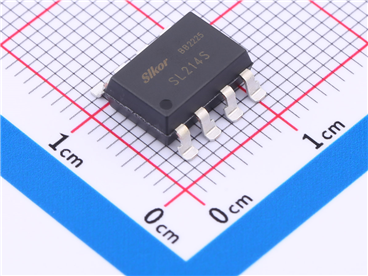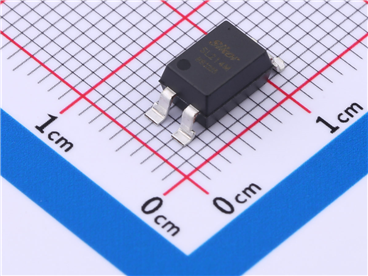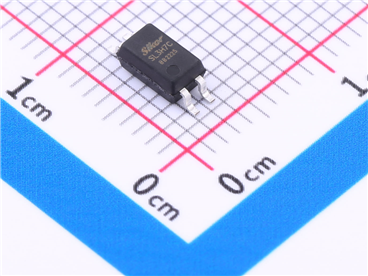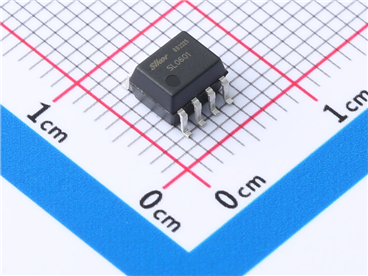Service hotline
+86 0755-83044319
release time:2025-03-27Author source:SlkorBrowse:2850
At the initial stage of any project, SLKOR places great emphasis on ensuring that both the market and R&D teams have a comprehensive understanding of the product’s goals, features, and the expected market responses. This clarity is critical to the project's success, as it lays a solid foundation for effective collaboration between various departments and stakeholders involved in the project. The process begins with thorough preliminary planning, which includes extensive market research, competitor analysis, and technical assessments. These steps help SLKOR gain valuable insights into the market dynamics, consumer preferences, and emerging trends. By evaluating these factors in detail, the team can identify potential opportunities for differentiation and innovation, which can give the product a competitive edge in the marketplace.
Market research is one of the cornerstones of SLKOR’s approach to project development. It involves analyzing customer needs, pain points, and expectations to determine the features and qualities that the product should possess. This step helps SLKOR tailor the product to meet the demands of the target audience, increasing the likelihood of its commercial success. Additionally, understanding the competition is equally important. By conducting a competitor analysis, SLKOR can identify the strengths and weaknesses of existing products in the market. This insight allows SLKOR to avoid common pitfalls and capitalize on areas where competitors may be lacking, thus giving SLKOR a unique selling proposition (USP) that resonates with consumers.
Technical assessments are another vital aspect of SLKOR’s preliminary planning process. They provide a clear understanding of the product’s technical feasibility, production costs, and the resources required to bring it to market. By evaluating the technical aspects of the product early on, SLKOR can address any potential challenges or limitations, making necessary adjustments to the product design or development process. This proactive approach ensures that the product can be developed within the required time frame and budget, reducing the risk of delays or cost overruns later in the project.
Once the project goals and expectations are clearly defined, SLKOR moves forward by establishing a goal-oriented approach that drives the team toward success. Setting clear objectives and timelines helps create a sense of direction and purpose, motivating team members to work towards achieving these goals. To further enhance motivation, SLKOR implements effective reward and supervision mechanisms. These mechanisms are designed to incentivize timely or early completion of project milestones. For example, team members who meet or exceed deadlines may be rewarded with bonuses, recognition, or other forms of acknowledgment. These rewards not only recognize individual achievements but also contribute to a positive work environment where employees feel valued for their contributions.
On the other hand, SLKOR also recognizes the importance of accountability and discipline. To prevent delays and ensure that the project stays on track, penalties are imposed on teams or individuals who fail to meet deadlines or deliver subpar results. These penalties are designed to create a sense of urgency and responsibility, encouraging employees to prioritize their tasks and work efficiently. By combining both rewards and penalties, SLKOR fosters a culture of accountability and high performance, ensuring that projects are completed on time and meet the expected quality standards.
As the project progresses to the decision-making phase, SLKOR leverages advanced technologies such as big data analysis and artificial intelligence (AI) tools to enhance the decision-making process. These technologies provide valuable insights that help SLKOR make informed decisions based on real-time data and predictive analytics. For instance, big data analysis enables SLKOR to examine vast amounts of market and consumer data, uncovering patterns and trends that may not be immediately apparent through traditional methods. This data-driven approach allows SLKOR to make more accurate predictions about consumer behavior, market demands, and the potential success of a product.
AI tools further support the decision-making process by automating repetitive tasks, identifying potential risks, and offering recommendations for improvements. AI algorithms can analyze historical data and predict potential challenges that could arise during the project, such as supply chain disruptions or changes in market conditions. This predictive capability allows SLKOR to take preemptive action, reducing the likelihood of delays or setbacks. By integrating AI into the decision-making phase, SLKOR ensures that the project remains on course and that potential issues are addressed before they become significant obstacles.
In addition to big data and AI, SLKOR also relies on repeated evaluations throughout the project to ensure that progress is being made according to plan. Regular evaluations provide an opportunity to assess the project's status, identify any deviations from the original goals, and make necessary adjustments. These evaluations serve as a checkpoint, allowing SLKOR to course-correct if needed and ensure that the project remains aligned with its objectives. By continuously monitoring the project’s performance and making data-driven decisions, SLKOR can minimize the risk of delays and keep the project moving forward smoothly.
In conclusion, SLKOR’s approach to project management is grounded in thorough planning, goal-setting, and the effective use of technology to drive decision-making. From the initial stage of market research and technical assessments to the implementation of reward and penalty systems, SLKOR fosters a culture of efficiency, accountability, and innovation. By incorporating big data analysis and AI tools into the decision-making process, SLKOR ensures that its projects are well-positioned to succeed in an ever-changing market. Through repeated evaluations and a commitment to continuous improvement, SLKOR reduces the risk of delays and ensures that its products are delivered on time and meet the highest standards of quality.









Site Map | 萨科微 | 金航标 | Slkor | Kinghelm
RU | FR | DE | IT | ES | PT | JA | KO | AR | TR | TH | MS | VI | MG | FA | ZH-TW | HR | BG | SD| GD | SN | SM | PS | LB | KY | KU | HAW | CO | AM | UZ | TG | SU | ST | ML | KK | NY | ZU | YO | TE | TA | SO| PA| NE | MN | MI | LA | LO | KM | KN
| JW | IG | HMN | HA | EO | CEB | BS | BN | UR | HT | KA | EU | AZ | HY | YI |MK | IS | BE | CY | GA | SW | SV | AF | FA | TR | TH | MT | HU | GL | ET | NL | DA | CS | FI | EL | HI | NO | PL | RO | CA | TL | IW | LV | ID | LT | SR | SQ | SL | UK
Copyright ©2015-2025 Shenzhen Slkor Micro Semicon Co., Ltd